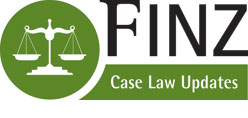|
4227 REVIEW GRANTED Evidence that a tobacco company deliberately created a false controversy to mislead the public into believing that there were scientific doubts about the connection between cigarette smoking and lung cancer and other diseases supported a verdict against it in actions for intentional misrepresentation and false promise; such actions were not pre-empted by federal laws applicable to smoking and health; a trial court may make its granting of a new trial motion on the ground of excessive punitive damages subject to the condition that the motion is denied if plaintiff consents to a specified reduction in the amount; failure to object to statements by an opposing attorney during closing argument that were not egregious or persistent enough to make an admonition ineffective prevents a claim of attorney misconduct based on the statements from being raised on appeal; without evidence of a defendant's expenses, evidence of its income is insufficient to support an award of punitive damages, but a concession during trial by defendant's counsel that defendant can afford the amount of punitive damages requested is a binding judicial admission that prevents defendant from raising the inadequacy of the financial evidence on appeal; defendant's extremely reprehensible behavior in conducting a deceptive public campaign designed to obscure that cigarette smoking caused lung cancer and other serious diseases, and its addition of substances designed to increase the effect of nicotine to further exploit its customers' addiction and gain new customers, combined with the vast scale and profitability of its actions, was sufficiently reprehensible to justify a punitive to compensatory damages ratio of 33:1.CitationBULLOCK v PHILIP MORRIS (Tobacco Wars) 138 CA4 1029 [See: CCP 662.5; Boeken v Philip Morris 127 CA4 1640, T/AT 10/04; Adams v Murakami 54 C3 105; State Farm v Campbell 538 US 408, T/AT 7/03; Simon v San Paolo 35 C4 1159, T/AT 7/05]
|
|



